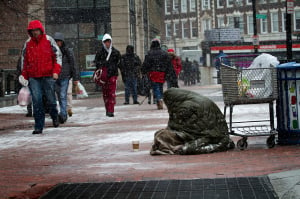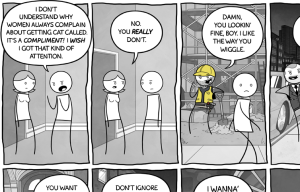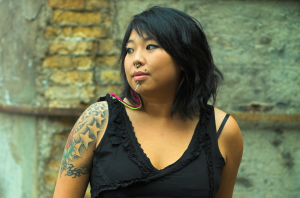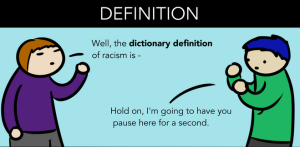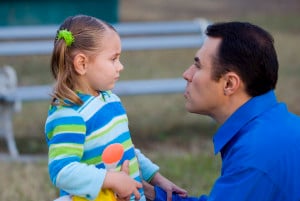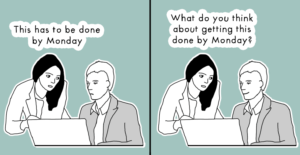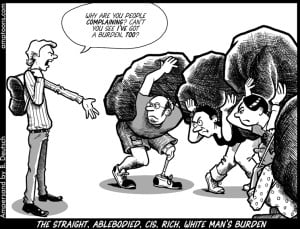Originally published on Flying While Falling Down and republished here with the author’s permission.
It took me a really long time to come to terms with my aromanticism.
Being an aromantic means that I don’t have romantic attraction. A lot of people assume that this means I can’t be loving, friendly, or even sociable. A lot of people also assume that I’m a prude and a whiny “trend follower” by being openly aro.
What a lot of people don’t realize is how it feels to be an aromantic person who’s in a romantic relationship.
1. There Was Just So Much Stress
I’m a very loving and compassionate person. I like helping people and it makes me feel happy to see others happy.
That doesn’t change in a relationship, but what the person I’m dating expects from me does.
In a relationship, I’m always wondering if I’m doing “it” right. I always worry that my partner isn’t happy because I’m not happy. I steadily get more depressed as the relationship goes on, despite loving the person I’m with.
I don’t understand why my partners get upset with me for doing my own thing. I don’t understand why we have to be together all the time, and I begin to wish they would leave me alone.
Even the most accommodating relationship left me feeling frustrated and tied down by the label “girlfriend.”
Being in a relationship was like being in a cage where each day chipped away at who I was and how much I could stand, even when I loved the person I was with.
2. Other People Didn’t Understand
And I don’t talk about it anymore, for the most part.
I used to talk about having those feelings of disconnect with what friends my partner and I shared. I wanted to know how I could deal with those issues.
That was when words like “selfish,” “bitch,” and “cold” were generally used.
So, I’d apologize and walk away, wondering why I felt like “love” was drowning me when everyone else seemed to be flying. At one point, I even started taking anti-depressants in the hopes that those feelings would disappear. They didn’t.
And then, someone would talk to my partner and warn them that I wasn’t satisfied.
Instead of talking or backing off, my partners would generally try to be even closer to me physically. When those advances were rejected or I wasn’t responding “enough,” we would argue.
Most of the time, our friends would side with my partner, and I would feel horribly alone.
3. Breakups Were Messy – For Both of Us
The breakups were the worst in a lot of ways. Once everything reached a boiling point, it was almost always my partner that ended things.
They even used the same reasons each time. I was “not committed,” I was “not in love with them,” I only “treated them like a friend.”
I hated it when they said I didn’t love them, because I did. Trying to explain my feelings wasn’t something I could do back then though – I didn’t have a word for why I felt that way.
I rarely cried, or if I did, I cried because I knew how bad I’d hurt them. Even then, I was generally so relieved to be out of that situation that I was happy soon after.
This hurt them more, which I didn’t understand.
It was only after several incidents where my exes tried to “get back at me” that I realized that not everyone felt relief when a relationship ended.
4. There Was No Alternative Then
Now, I look back at those relationships and wish I’d known that I was aromantic. Maybe I’d still be with one of those people today. But, back then, there would be a period of singledom, usually about three to six months, and then I’d be dating once more.
It wasn’t even that I wanted to date!
Either my friends would comment on my single status and try to convince me that I’d be happier as a couple, or I would wish for the intimacy and companionship that only seemed available in romantic relationships because I was lonely.
And then the cycle would start again, just as unfulfilling and confining as the one before.
5. It’s So Much Better Now
Now that I’m able to live openly as an aromantic person, it’s much better.
Yeah, I have to explain what it is a lot, and yeah, most people look at me like I have a communicable disease or something, but I’m happy.
For the first time, I realize that passionate friendships and queerplatonic relationships are possible. I realize that I’m not cold or heartless just because I can’t do the whole relationship thing. I know that there are others like me and that I can finally use the right words to explain how I feel.
There’s nothing “wrong” or “weird” or “bad” about being an aromantic. For me, realizing that I’m not obligated to be, nor interested in, romantic relationships was one of the best feelings in the world.
What are your relationships like as an aromantic person? What were they like before you realized you were aro?
[do_widget id=’text-101′]
Sara Roberts is a college student who works part-time as a freelance writer. They explore topics of feminism, writing, and sexuality on their blog, Flying While Falling Down, under the pen name Len Gray. A person of many interests, they currently live in Missouri with their father and two dogs, Greta and Jake.
Search our 3000+ articles!
Read our articles about:
Our online racial justice training
Used by hundreds of universities, non-profits, and businesses.
Click to learn more






